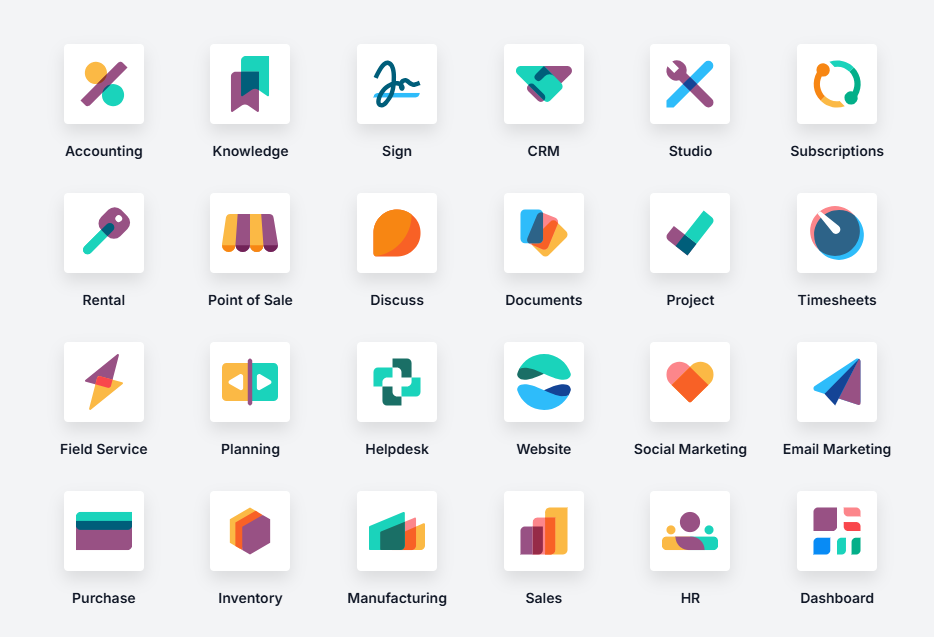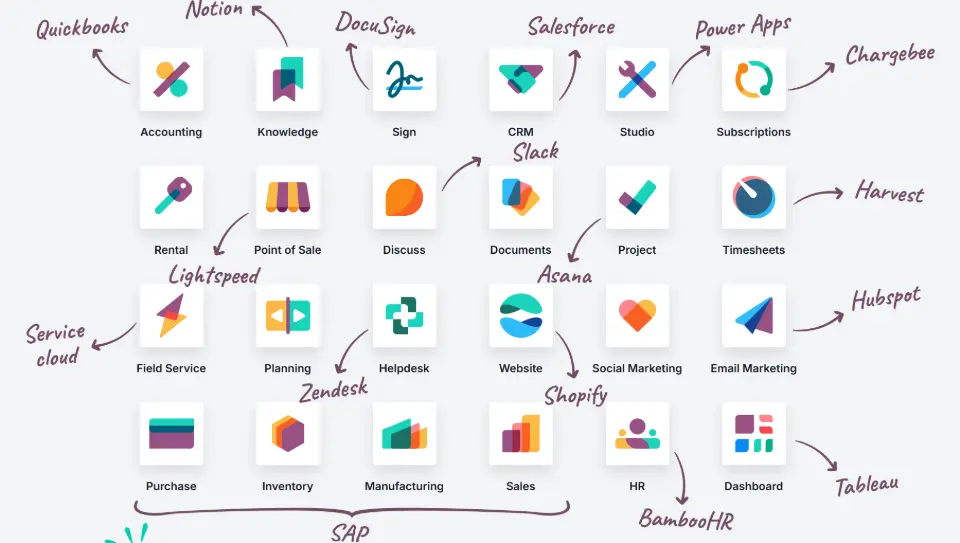Introduction
The proposal relates to the implementation of Odoo ERP for Lanx Shoes Group Limited and is presented following a visit by Gavin to Whalley to understand the workflows within the relevant business areas.
The implementation covers the functional build of the following core Odoo modules: Inventory, Manufacturing, Repair and Purchase. The functional build provides for the creation of business workflows within the Odoo environment utilising the core modules either out of the box, or with minimal customisation which typically allows for changes to layout, addition or removal of fields, and adaptation of stages within the relevant module.
In addition to the functional build there is potential need for development work to allow integration with existing systems via API calls. At this stage the only integration that has been included within the scope is to Asana, allowing for the sync of repair orders directly into Odoo. Further integrations, (although not anticipated to be a problem in any way) have not been allowed for within the scope of this proposal, as they will require a more detailed technical specification to be produced in order to gain accurate costs for any development work.
The Operations Hub would provide an end to end project to deliver these requirements. This proposal also includes the provision of 1st line support for complete Odoo environment for the period of 12 months from project completion.
Modularity
The Odoo platform provides functionality through modules, think of these as "apps" within the Odoo ecosystem. There are currently 75 core modules, with thousands of publicly available externally developed third party apps available for the different versions of Odoo (the current version is 18.3)
One of main differentiators with Odoo in comparison to other ERP systems is the fact that is open source. This ultimately means that over it's lifespan to date, Odoo has likely had an incomparable amount of development hours compared to other ERP systems from both internally and the wider development community. This, coupled with the founders vision has created a product that I don't believe has a comparable competitor at present.


Inventory
Creation of the Inventory workflow from order to finished goods. We will build the system to meet the current requirements of the inventory process, with the flexibility to make changes as the business process evolve. The requirements are based on the process flow provided by Sam.
Manufacturing
Creation of the Manufacturing workflow from start to finish for the current product range including Belts. The Manufacturing module will be built to meet the current requirements of the process, which will be a single flow through the stages of assembly, with a quality check at completion. The current need is to allow for management oversight without introducing unnecessary system complexities. Again, we will have complete flexibility to make system changes as the manufacturing process evolves. This can include representing the individual stages in a more granular way, time tracking, machine health management monitoring for overall equipment effectiveness and much more.
Repair
Creation of the Repair workflow from receipt of repair order within Asana, to the return of the repaired product to the customer. The repair stages will be customised to meet requirements and can be added to or amended as required. This module will require some integration to be built with Asana for which there is an existing solution we can implement.
Purchase
Creation of the Purchasing workflow to tie in directly with Manufacturing and Inventory. This will allow for PO creation based on the bill of materials for given products, the output of the team as well as current and forecasted inventory levels. The system provides for complex enterprise level purchasing from multiple vendors, with automated processes to a simple process allowing for a PO to be raised, approved and sent to the Finance team within a few clicks.
As with all modules, there is complete flexibility to amend or develop around evolving business processes.
Proposed Implementation Approach
Phase One
Build complete functionality for the manufacturing, inventory, repair and purchase workflows.
Training and Implementation
Post Implementation Support
Phase Two
Evaluate Odoo functionality for other business areas
Summary
As I am writing this proposal I am resisting the temptation to go into granular detail of the various functions within Odoo that I believe have a good fit for Lanx as I'm aware this project has a scope to meet a current need in the first instance. I do however feel that there are some modules that would be beneficial to implement from the start to further support this project and potentially other business areas. These include the E-learning module and Knowledge (knowledge base) and we will be happy to set these up with some content without any cost.
We are also keen to talk to any business areas that would like to learn more about the functionality of Odoo.
At the bottom of this page you will see a summary of costs for both the licenses and separately the implementation. The purchase of licenses is a transaction between the customer and Odoo, however we can and always try to secure the best deal available for all of our clients. There are a couple of points to consider relating to license costs. Firstly, Odoo offer some quite good discounts on the initial purchase of licenses, but further purchases aren't really negotiable in our experience. If the decision is made to progress with this project it is worth considering what additional use of the system could look like in terms of users and functions, as it may be worth considering licensing the system to cover the scope of future plans from day one to get the greatest level of discount. Odoo also offer a multi year discount which gets better the longer the commitment is. I have included a link to PDF versions of quotes from Odoo.
With regard to implementation costs, it is based on a day rate and we are generally very accurate in estimating the time required for a project based on experience. If we ever get that wrong and end up spending more time to deliver a project, that's on us so the costs provided are fixed for the scope of work defined.
Thanks for the opportunity to talk to Lanx. I've really enjoyed seeing the business, the culture is really visible and I really like it. I also really like my new Garstang boots!
Regards,
Gavin
